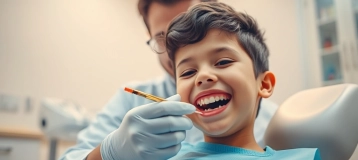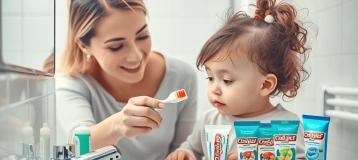
A healthy smile is a lifelong asset, and it all starts with the health of your child's baby teeth. While they are temporary, baby teeth play a crucial role in your child's oral development, acting as placeholders for permanent teeth. Unfortunately, they are also susceptible to a condition known as baby bottle tooth decay (BBD), a form of tooth decay in infants and toddlers that can have lasting consequences. Understanding the causes and implementing preventative measures are key to protecting your child’s dental health.
What Causes Baby Bottle Tooth Decay?
BBD is a condition where tooth decay occurs, most commonly affecting the upper front teeth. The primary cause is prolonged and repeated exposure to sugary liquids. When a baby falls asleep with a bottle containing formula, milk, juice, or other sugary drinks, the sugars coat their teeth for an extended period, providing a perfect environment for bacteria to produce acids that erode tooth enamel. Even breast milk can contribute to BBD if a baby is allowed to nurse continuously while sleeping. Another lesser-known cause is the transmission of cavity-causing bacteria from a caregiver to the child through saliva, for example, by sharing a spoon or cleaning a pacifier with their mouth. Additionally, insufficient fluoride exposure can make teeth more vulnerable to decay.
Recognizing the Signs
Early signs of BBD can be subtle and difficult for a parent to spot. They often begin as white spots on the gumline of the upper front teeth. As the condition progresses, these spots can turn into yellow, brown, or black areas of decay. It's recommended that your baby have their first dental visit by their first birthday or when their first tooth appears. A pediatric dentist can provide a clear plan for oral hygiene and identify any early signs of decay that may be hard to see at home. Untreated BBD can lead to pain, infection, costly dental procedures, and even damage to permanent teeth.
Effective Prevention Strategies
Preventing Baby Bottle Tooth Decay is far easier than treating it. Simple, consistent habits can make a huge difference:
Clean Gums and Teeth: After each feeding, gently wipe your baby’s gums with a damp cloth or gauze. Once teeth erupt, use a child-sized toothbrush with a rice-grain-sized amount of fluoride toothpaste.
Mind the Bottle: Put your baby to bed with only water in their bottle, and avoid using the bottle as a pacifier.
Limit Sugary Drinks: Restrict sugary juices and soft drinks, reserving them for older children and special occasions.
Avoid Saliva Sharing: Don't share utensils or pacifiers with your baby to prevent the transmission of cavity-causing bacteria.
Monitor Breastfeeding: For breastfeeding mothers, remove the breast from your baby’s mouth once they have fallen asleep.
Treatment Options
If your baby is diagnosed with BBD, there are effective treatment options available. The first step is always to consult with a pediatric dentist. They will assess the severity and recommend a treatment plan tailored to your child's needs.
Fluoride Treatments: For early-stage decay, fluoride treatments can help remineralize the enamel. This may involve in-office fluoride varnishes or the use of fluoride toothpaste at home. Silver diamine fluoride (SDF) is another option that can arrest the progression of cavities.
Dental Restorations: For more advanced decay, the dentist may recommend fillings or, in severe cases, stainless steel crowns.
Extractions: In the most severe cases where the tooth is extensively decayed or infected, extraction may be necessary to prevent the spread of infection and protect the developing permanent tooth.
Treating BBD is vital not only for relieving pain but also for preserving the space needed for adult teeth. Premature loss of baby teeth can cause permanent teeth to erupt in a misaligned position, potentially leading to the need for orthodontic treatment later on. By establishing good oral hygiene habits from infancy and seeking professional dental care, you can lay the foundation for a lifetime of healthy smiles.
Pro Tip
The content of the article is shared by netizens, please carefully identify it





